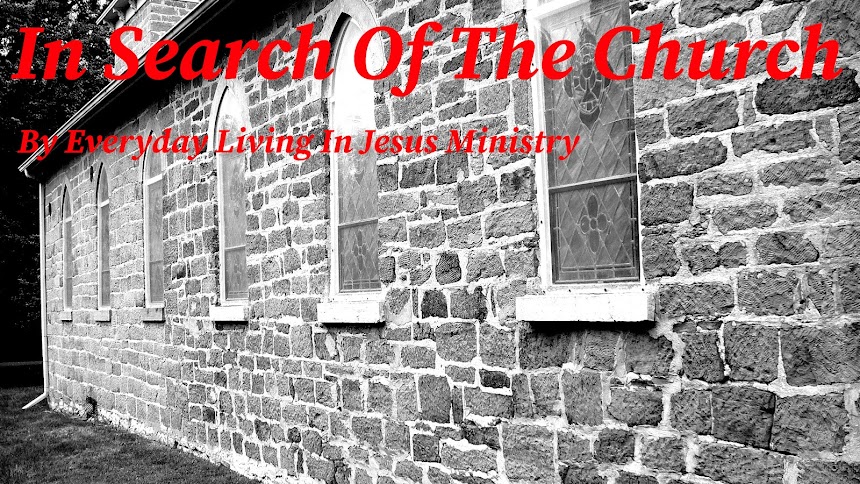What
is Church? Is is a building, a denomination, an organization, a
system, a format, a Pastor, a Priest? What does the word Church even
mean? Well, actually the word Church never appears in the New
Testament. The word that has been miss-translated as Church is the
word “Ecclesia” and this word simply means “the called out
ones” or “The summond”. So, who are the called out ones? They
are the believers and followers of Jesus “Therefore, Come out from
them and be separate, says the Lord.” 2 Corinthians 6:17.
You
know, I've heard people rightly speak of not simply going to church
but living the church but I think we often get the meaning of this
wrong. Okay, going to church is showing up on Sunday morning and
maybe a midweek Bible study. But what is living the church? So many
of us will think “well if Sunday morning isn't enough to live the
church then that means we need to attend service more often, we need
to become involved in Bible study group, we need to get involved in
the music ministry”. There is nothing really wrong with these
activities but we are still seeing the church as a place, and so we think that if we
want to live the church that means we have to become more involved in
that place.
You
are the Church and I am the Church and we are to meet together to
pray for each other and to minister to each other and to have
fellowship but the meeting itself is not Church, we are the church.
It is important to get the order of things right The Church is not
the leadership, the Pastor, the music leader, the deacons, the elders
and then the rest of us are just the “audience” This is the
mindset that we must escape from. Sure, there are leaders to be
listened to and to be followed “And God has placed in the church
(among the believers) first of all apostles, second prophets, third
teachers, then miracles, then gifts of healing, of helping, of
guidance, and of different kinds of tongues.”1 Corinthians 12:28.
But the
whole idea that to get fed spiritually, to be prayed for, to have
fellowship, to worship God depends on going to a certain place at a
certain time is absurd and something that we need to break away from
if we really want to live the church.
If you and a few friends are
gathered around the table sharing a dinner and fellowshiping how is
that not the assembling of the Believers? If you and your neighbour
sit down and discuss the word of God how is that not the assembling
of the believers? The assembling of the believers doesn't have to be
at a certain building at a certain time under a certain banner. It is
where you are because you are the believers. And it is whenever you
assemble with other believers. Sometimes larger groups of believers
will assemble together, but that doesn't make that the church, that
doesn’t make that gathering any more important or significant than
the assembling of a few. Jesus said “For where two or three gather
in my name, there am I with them.” Matthew 18:20.
In
1 Corinthians 14:26 we see God's plan for the assembling of the
believers “When you come together, each of you has a hymn, or a
word of instruction, a revelation, a tongue or an interpretation.
Everything must be done so that the church (the believers) may be
built up.” You see, maybe when we meet with our Christian friends
God will give us a word for one or all of the others, maybe a
revelation. Maybe as we fellowship we sing a song to the Lord. You
see, this is our life, the life of the believers. Everything we do
needs to be for and to God. Church is a lifestyle to be lived, not a
place to go. The life lived by the believer is church because the
true believer is always assembling with other believers in many
different forms and in many different places.
Try
this, the next time you read in the Bible every time you see the word
Church replace it with the word believers, you just might get a new
perspective on the Christian life.














